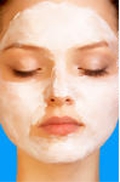
Skin has pigmentation, provided by melanocytes, which absorbs some of the potentially dangerous radiation in sunlight. It also contains DNA repair enzymes which reverse UV damage, and people who lack the genes for these enzymes suffer high rates of skin cancer. One form predominantly produced by UV light, malignant melanoma, is particularly invasive, causing it to spread quickly, and can often be deadly. Human skin pigmentation varies among populations in a striking manner. This has sometimes led to the classification of people on the basis of skin color. See the article on human skin color. Mammalian skin often contains hairs, which in sufficient density is called fur. The hair mainly serves to augment the insulation the skin provides, but can also serve as a secondary sexual characteristic or as camouflage. On some animals the skin is very hard and thick, and can be processed to create leather. Reptiles and fish have hard protective scales on their skin for protection, and birds have hard feathers, all made of tough β-keratins. Amphibian skin is not a strong barrier to passage of chemicals. A frog sitting in an anesthetic solution will quickly go to sleep. The skin is often known as "the largest organ in the human body". This applies to exterior surface, as it covers the body, appearing to have the largest surface area of all the organs. Moreover, it applies to weight, as it weighs more than any single internal organ, accounting for about 15 percent of body weight. For the average adult human, the skin has a surface area of between 1.5-2.0 square metres, most of it is between 2-3 mm thick. The average square inch of skin holds 650 sweat glands, 20 blood vessels, 1000 melanocytes, and more than a thousand nerve endings. Skin is composed of the epidermis and the dermis. Below these layers lies the hypodermis(subcutaneous adipose layer), which is not usually classified as a layer of skin. The dermis lies below the epidermis and contains a number of structures including blood vessels, nerves, hair follicles, smooth muscle, glands and lymphatic tissue. It consists of loose connective tissue otherwise called areolar connective tissue - collagen, elastin and reticular fibres are present. Erector muscles, attached between the hair papilla and epidermis, can contract, resulting in the hair fibre pulled upright and consequentially goose bumps. The hypodermis is not part of the skin, and lies below the dermis. Its purpose is to attach the skin to underlying bone and muscle as well as supplying it with blood vessels and nerves. It consists of loose connective tissue and elastin. The main cell types are fibroblasts, macrophages and adipocytes (the hypodermis contains 50% of body fat). Fat serves as padding and insulation for the body. Skin can be dividided into thick and thin types. Thick skin is present on the soles of the feet and the palms of the hands. It has a larger stratum corneum with a higher keratin content. Thick skin does not grow hair; its purpose is to help grip. Thin skin is present on the bulk of the body and has a smaller stratum corneum and fewer papillae ridges. It has hair and is softer and more elastic. The characteristics of the skin, including sensory nerve density and the type of hair, vary with location on the body. The skin must be regularly cleaned. Unless enough care is taken it will become cracked or inflamed. Unclean skin favors the development of pathogenic organisms. The constantly peeling off dead cells of the epidermis mix with the secretions of the sweat and sebaceous glands and the dust found on the skin to form a filthy layer on its surface. If not washed away the dirt and dead skin slurry begins to decompose emitting a foul smell.
If you take care of your skin, your skin will take care of you! But with all of the lotions, creams, and potions on the market, it can be difficult to know which product will work for you. Many products claim to remove wrinkles or heal dry skin. Others claim to contain expensive ingredients that they say will improve the effects of the product. The first step to taking care of your skin is preventing damage. Sun, wind, pollutants, and simply aging can degrade the condition of your skin. Common complaints include dry and itchy skin, wrinkles, sagging, color changes, and age spots. There are steps that you can take to keep you skin looking and feeling its best. Exercise, rest, and good nutrition lay the foundation for beautiful, healthy skin, inside and out. A proper diet is not only good for your overall health, it also helps to ensure that your skin will receive all of the vitamins, minerals, and nutrients that it needs to maintain and repair cells. Drinking purified water is another good way to keep your skin healthy. Water helps to hydrate the skin and move waste and nutrients through the system. It is very effective mixing a teaspoon or capful of Organic Apple Cider Vinegar in with your water. Do not drink Tap Water. Dry skin is very common, especially with age. Older skin has fewer sweat and oil glands than younger skin. Dry skin may be caused by frequent baths, certain cosmetics or medications. But whatever the cause, there are ways to alleviate the itchiness associated with it. Avoid using harsh soaps when bathing, and if possible, cut back on the number of baths or showers each week. A sponge bath with warm water may help to clean and revive skin without stripping the skin of its valuable moisturizers. A skin care routine does not have to be elaborate in order to be effective. But you should develop some kind of skin care routine based on your skin type, daily activities, and nutritional needs so that you can be sure you are taking the very best care of your skin. Following a daily skin care regime will also allow you to more closely evaluate your skin for abnormalities. Unless your skin is very oily, you will want to use a moisturizer everyday to keep your skin hydrated and healthy. Your skin needs moisturizer all year long as both the indoor winter heat, and summer sun can be equally damaging to your skin. Use a natural sunscreen when possible, regardless of whether or not you plan on spending much time in the sun. The sun's rays are very damaging and if you get in the habit of applying sunscreen everyday, you will never be left without protection. The suns most beneficial rays occur at sunrise and sunset. As we age, our body undergoes various changes, and so does our skin. In our skin, we have tissues known as collagen and elastin. These tissues are mainly responsible for making our skin firm and stretchable. As we grow older, the amount of collagen and elastin in our skin naturally diminishes. As a result, our skin becomes less elastic and weaker, thus creating "wrinkles". Experts say that the amount of wrinkles that a person will develop through the years also depends on the genetic make up of this individual. However, smoking, sun exposure, dry skin, and repetitive facial expressions and mannerisms such as frowning, can all enhance the creation of wrinkles that may or may not be permanently present. Over the years, beauty experts and skin doctors have come up with a vast array products to treat and minimize wrinkles. Anti-wrinkle creams and ointments help reduce the appearance of wrinkles and prevent new ones from forming. These wrinkle ointments and anti-aging creams help a lot in restoring the skin's firmness and elasticity. In addition, these products contain anti-oxidants and retinol that not only aids in reducing wrinkles and fine lines on the skin, but also stimulates collagen production. The important thing to remember when seeking out treatment for your wrinkles is to know first how your body can possibly react to the treatment. Get in touch with a skin doctor for things that you are not sure of, but are contemplating on trying out. There are a lot of skin care products in the market today. Unlike before when a normal bar of soap was used for skin cleansing, cosmetic companies are now producing a wide variety of skin care treatments that can address various skin concerns. However, there are cases when treatments need to be more aggressive, especially for those who have aging or blemished skin. Most, if not all, of the over-the-counter products are topical in nature, meaning it only affects the epidermis or the outer layer of the skin. Aging or blemished skin needs to be treated down to the root of the problem to see definite changes.

Definition interpretingAcne
- An inflammatory disease of the sebaceous glands and hair follicles of the skin that is marked by the eruption of pimples or pustules, especially on the face.
Bacteria
- Microscopic unicellular prokaryotic organisms characterized by the lack of a membrane-bound nucleus and membrane-bound organelles.
Dermis
- The sensitive connective tissue layer of the skin located below the epidermis, containing nerve endings, sweat and sebaceous glands, and blood and lymph vessels.
Epidermis
- The outer, protective, nonvascular layer of the skin of vertebrates, covering the dermis.
Hypodermis
- A subcutaneous layer of loose connective tissue containing a varying number of fat cells.
Pimples
- A small swelling of the skin, usually caused by acne; a papule or pustule.
Ultraviolet radiation
- Invisible electromagnetic radiation between visible violet light and X rays.
|